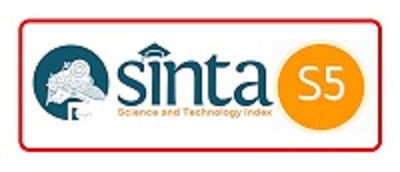Pengaruh Good Corporate Governance Terhadap Tax Avoidance Pada Perusahaan Yang Terdaftar di Jakarta Islamic Index (JII)
DOI:
https://doi.org/10.29240/disclosure.v2i1.4530Keywords:
Institutional Ownership, Independent Board of Commissioners, Audit Committee, Company Size, Tax AvoidanceAbstract
The realization of the tax amnesty in 2016 made Indonesia ranked first in the practice of implementing tax amnesty in the world, but on the other hand there are still many companies that have not complied with tax payments. Good corporate governance should take an important role in minimizing tax avoidance practices. This study aims to examine the effect of Good Corporate Governance on tax avoidance. Good Corporate Governance is proxied by Institutional Ownership, Independent Board of Commissioners, Audit Committee and Company Size, while Tax Avoidace is proxied by Current Effective Tax Rate with the object of research being companies listed in the Jakarta Islamic Index (JII). This research is a quantitative research using regression analysis method. The regression results explain that; Institutional ownership has a significant positive effect on tax avoidance (0.0212 < 0.05), the Board of Independent Commissioners has no significant effect on tax avoidance (0.8451 > 0.05), the Audit Committee has a significant negative effect on tax avoidance (0.0498 < 0.05), Company Size has a significant positive effect on tax avoidance (0.0011 < 0.05).
Downloads
References
Ayu Annisa, N., & Kurniasih, L. (2012). Pengaruh Corporate Governance Terhadap Tax Avoidance. Jurnal Akuntansi & Auditing, 08(02).
Ayu Cahya Maharani, I. G., & Alit Suardana, K. (2014). Pengaruh Corporate Governance, Profitabilitas Dan Karakteristik Eksekutif Pada Tax Avoidance Perusahaan Manufaktur. E-Jurnal Akuntansi Universitas Udayana, 09(02).
Dharmapala, & Desai. (2006). Corporate tax avoidance and high powered incentives. Journal of Financial Economics, 79(01).
Hartati, N. (2015). Pengantar Perpajakan. Pustaka Setia.
Hendy Darmawan, I. G. (2014). Pengaruh Penerapan Corporate Governance, Leverage, Return On Assets, dan Ukuran Perusahaan pada Penghindaran Pajak.
Kesit Prakosa, B. (2014). Pengaruh Profitabilitas, Kepemilikan Keluarga dan Corporate Governance Terhadap Penghindaran Pajak di Indonesia. Universitas Mataram Lombok.
Marfirah, D., & Syam BZ Fazli. (2016). Pengaruh Corporate Governance Dan Leverage Terhadap Tax Avoidance Pada Perusahaan Manufaktur Yang Terdaftar Di Bursa Efek Indonesia (BEI) Tahun 2011-2015. Jurnal Ilmiah Mahasiswa Ekonomi Akuntansi (JIMEKA), 01(02).
Putu Rista, D., & Ulupui, A. (2016). Pengaruh Komite Audit, Proporsi Komisaris Independen, Dan Proporsi Kepemilikan Institusional Terhadap Tax Avoidance. E-Jurnal Akuntansi Universitas Udayana, 16(01).
Silvia Ratih, P., & Harto, P. (2014). Pengaruh Tata Kelola Perusahaan Terhadap Penghindaran Pajak, Diponegoro. Journal of Accouting, 03(02).
Taylor, G., & Richardson, G. (22 C.E.). The Determinants of Thinly Capitalized Tax Avoidance Strusture: Evidence from Australian Firms. Journal of Internatinal Accounting, Auditing and Taxation.
Winata, F. (2014). Pengaruh Good Corporate Governance Terhadap Tax Avoidance pada Perusahaan yang Terdaftar di Bursa Efek Indonesia Tahun 2013. Jurnal Tax & Accountng Review, 04(01).
Wiryo Pramudito, B., & Maria M Ratna, S. (2015). Pengaruh Konservatisme Akuntansi, Kepemilikan Manajerial dan Ukuran Dewan Komisaris Terhadap Tax Avoidance. Akuntansi Universitas Udayana, 13(03).
Downloads
Published
How to Cite
Issue
Section
Citation Check
License
Copyright (c) 2022 Muhamad Mukhsin, Mesi Herawati

This work is licensed under a Creative Commons Attribution-ShareAlike 4.0 International License.
Authors who publish with this journal agree to the following terms:
- Authors retain copyright and grant the journal right of first publication with the work simultaneously licensed under a Creative Commons Attribution License (CC BY-NC-SA 4.0) that allows others to share the work with an acknowledgment of the work's authorship and initial publication in this journal.
- Authors are able to enter into separate, additional contractual arrangements for the non-exclusive distribution of the journal's published version of the work (e.g., post it to an institutional repository or publish it in a book), with an acknowledgment of its initial publication in this journal.
- Authors are permitted and encouraged to post their work online (e.g., in institutional repositories or on their website) prior to and during the submission process, as it can lead to productive exchanges, as well as earlier and greater citation of published work (See The Effect of Open Access).














